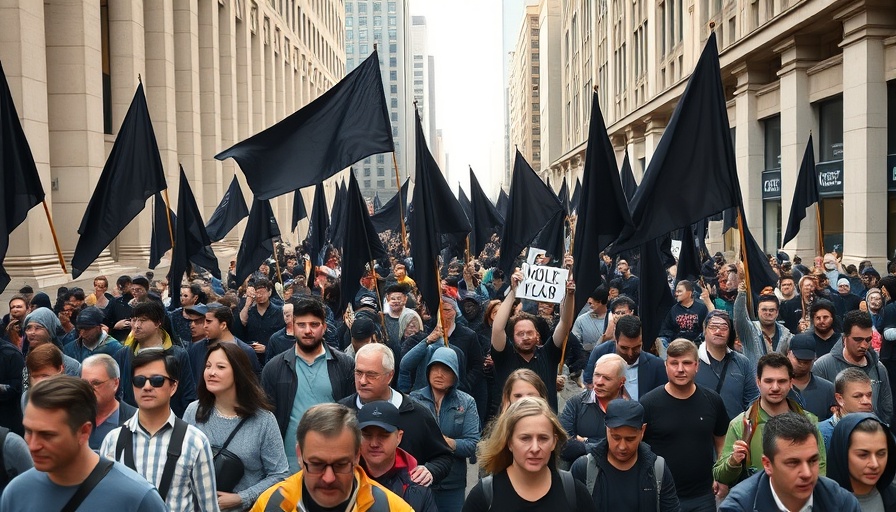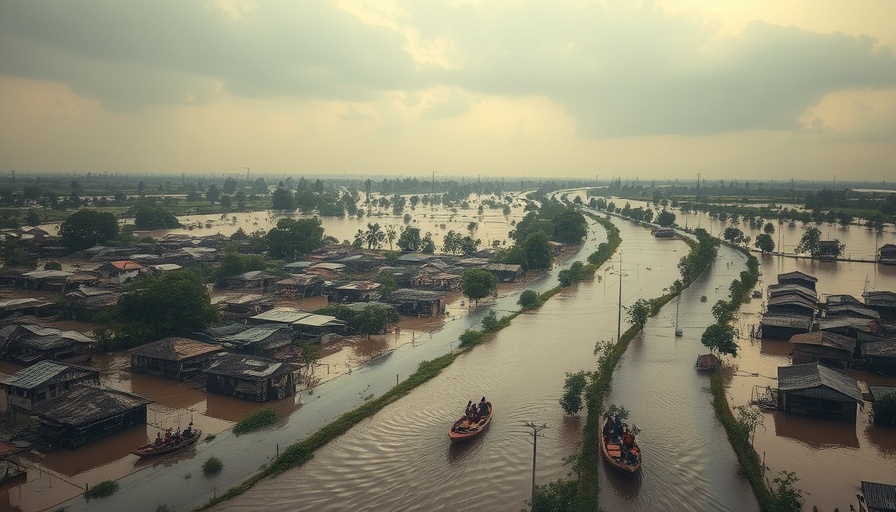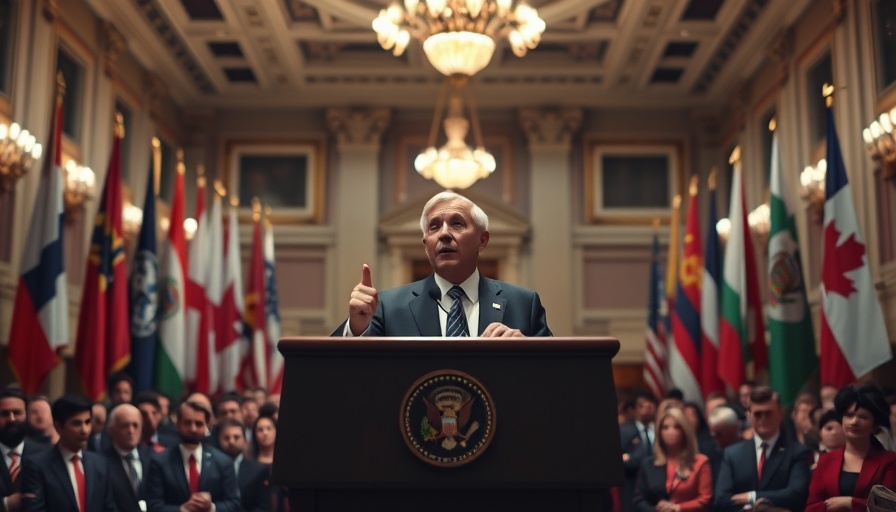
Unearthing the Past: Iraq's Journey to Justice
The excavation of a mass grave in al-Khafsa, near Mosul, marks a poignant chapter in Iraq's ongoing struggle to confront the legacy left by the Islamic State (IS). As excavators dig into the earth where bodies may lie buried—some of whom could be part of the reported 15,000 individuals who have succumbed to violence during IS’s ruthless campaign—the sensitive procedure is not merely about recovering physical remains but also about restoring dignity and facilitating closure for grieving families.
Historical Context: Understanding the Crisis
The rise of the Islamic State in the early 2010s brought with it unprecedented violence and destruction across the Middle East. Known for its brutal tactics and genocidal campaign against various groups, IS turned into a major international concern. As territories once held by the militant group now gradually return to Iraqi control, authorities are uncovering the grim traces of the past, with investigations into mass graves revealing a haunting history filled with suffering.
The Process: Excavation Challenges
The current excavation, which sputtered to life on August 9, faces significant obstacles, including the potential presence of unexploded ordnance and hazardous chemicals such as sulfur water. Ahmad Qusay al-Asady, head of the excavation department at the Martyrs’ Foundation, indicates that this operation is only the first step in a long process. Initial efforts focus on collecting surface evidence, with a more extensive exhumation to follow after securing necessary international support.
Building the Case: DNA and Identification Efforts
As excavation teams gather visible human remains, they are also tasked with compiling a database to aid in victim identification. This effort includes the collection of DNA samples from families of the suspected victims, facilitating a scientifically-backed process to help restore identities to the deceased. Al-Asady emphasizes the moral responsibility tied to these investigations: verifying identities not only pays tribute to those lost but also aids in delivering justice for families seeking truth amid turmoil.
Broader Implications: The Road Ahead for Iraq
This excavation symbolizes more than a physical unearthing of remains; it is a reflection of Iraq's commitment to addressing the wounds left by a tumultuous period. By engaging in these painful yet necessary excavations, Iraq is taking steps toward reconciliation and healing. The governmental partnership with various organizations shows a collaborative approach to resolving a collective trauma that still reverberates within communities.
Global Perspectives: How the World Views Iraq's Recovery
The international community watches closely as Iraq undertakes this complex journey. With each mass grave uncovered, there is a clarion call for accountability and justice. Global insights into such excavations raise awareness on topics of genocide, human rights abuses, and restorative justice globally. As other nations struggle with their histories of violence, Iraq's efforts become a crucial touchstone for dialogues surrounding accountability and healing.
Building Solidarity: Engaging with the Community
For Iraqi citizens, these excavations resonate deeply, stirring both grief and hope. In conversations across coffeehouses and community gatherings, the importance of these efforts fosters a sense of collective remembrance and solidarity. Local mental health resources are crucial in aiding those who grapple with complicated emotions surrounding the uncovering of their past. As families await DNA results, community narratives continue to evolve, emphasizing a shared desire for peace and justice.
Conclusion: Why Engagement Matters
This ongoing excavation process raises vital questions about memory, identity, and historical narrative. For readers and individuals invested in Iraq’s future, it is essential to remain engaged with these developments. Understanding these complex narratives not only impacts how history is recorded but can also shape future policies toward reconciliation. Engaging in discussions and sharing knowledge about Iraq's recovery fosters a broader understanding and connection with those still affected by the consequences of violence.
 Add Row
Add Row  Add
Add 




Write A Comment